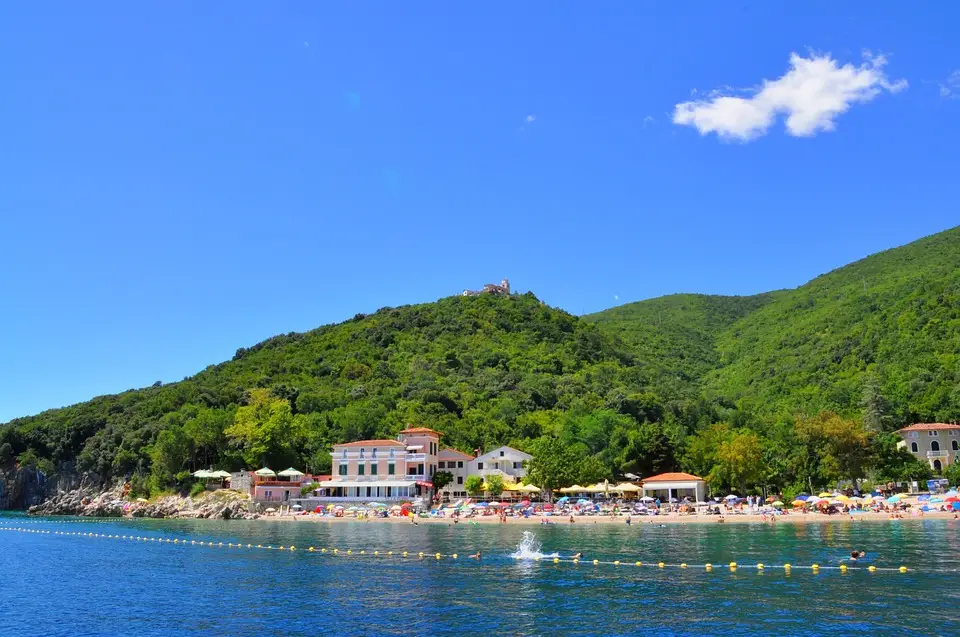As Poslovni Dnevnik/Marija Crnjak writes, summer resorts are a growing focus of investors of late, as this segment of tourism is expected to be the first to recover after the coronavirus crisis finally draws to a close, and despite the fact that issues continue to persist seemingly unrelentingly, optimism still reigns in the sector.
That being said, investors and decision-makers must keep in mind that the pandemic has changed guest behaviour and accelerated hotel business transformation trends, primarily through the development of mixed-use resorts and residential properties, as was explained by Philip Bacon, the director of planning, development, valuation at Horwath HTL, in an interview for Hospitality Insights magazine. As Croatian tourism and Croatian accommodation providers rely heavily on summer resorts, alterations and adaptations are in the works.
This crisis is lasting longer than expected. What keeps your hopes high?
I believe there are differences between where we were a year ago and where we are today, and that tourism will continue to show resilience and introduce innovations that will save the day. It’s important to keep in mind that this virus will not simply disappear, we’re all going to simply have to learn to live with it. The good thing is that this isn’t a demand crisis but a supply crisis, and with more than a year of working from home, we’ve never stopped working with our clients, helping them plan for the future and aiding them to adapt to changes in consumer behaviour brought by the pandemic.
This bizarre situation has served to accelerate some trends which were already taking place before 2020: a focus on healthcare and wellness, combining work, travel and private life anywhere in the world, the power of technology to connect people more effectively and efficiently, and the importance of truly sustainable values, especially those related to the production and consumption of energy and food. There’s also the realisation that in tourism you cannot simply sit back and take anything for granted, where there are still only two types of hotels, the ones that needs to be changed and the ones that you have to demolish.
Numerous hotel companies that have developed business or city tourism are now turning to resorts. What advice would you give them?
We mustn’t forget that bringing urban hotels to the beach was a good idea about 40 or 50 years ago, but that the world has changed significantly since then and guests are no longer attracted to the 20-square-metre air-conditioned room spread over several floors with narrow hallways. The way of life and the demands of guests have changed, and it is time to give people what they want, not what you already have, which is why the transformation of summer resorts across Europe has already begun. Today’s guests, especially when it comes to families and small groups, want a much more independent, residential style of accommodation, combined with excellent service when and where it’s needed. As a result, more and more hotel operators are looking for a real estate concept, and this pandemic has only heightened the value of that approach.
Furthermore, it’s time for a rethink in terms of the concept of health and wellness and we need to use it to create more reasons for people to come to a certain facility – the breadth and depth of the health and wellness segment is so extensive that today there’s no reason not to put it at the centre of creating a measurable competitive advantage.
Which regions will be the first to return to the game when it comes to holiday tourism?
Currently, the possibility of safe travel without too many practical problems will determine the rate of re-growth for individual destinations in the short term. We’re already seeing plans to create passenger corridors between countries based on a set of rules. This can create some short-term shifts in travel patterns, and of course, short trips close to home will be more popular, which could lead to rural destinations around the world being recognised as being just as attractive as beach resorts.
Places that offer a sense of space and place a real emphasis on health and wellness will be what many people are looking for now, and I believe this could become a long-term habit of guests. We’ll also see a growing interest in travel involving adventurous experiences with little impact on the environment, especially to more remote regions of the world. This comes down in part to a change in generational attitudes that had already begun a few years ago, and what is interesting is the convergence of the older generation and the younger generation in terms of values and behaviour. I think we’ll see more of that, as well as less strict segmentation based on age groups. What brings people together is their shared values.
How has the pandemic affected the real estate segment in the rental market?
Most of the development projects that have preoccupied me over the last year have been either combined-purpose projects (hotel and branded residences) or have focused on service apartments, either in urban centres or in resorts. Even before the pandemic struck, we knew we could work from home, and the digital nomad wasn’t something simply thought up and invented last year. When travelling away from their primary place of residence, many will look for a place where they can easily set up their home offices and work.
Some guests want to stay longer than the holidays, and this will affect the operation of such resorts. We’re also seeing a growing interest in residential private membership clubs, both in urban areas and in resorts. The desire to meet the people you’re sharing a holiday with is stronger than ever.
Branded residences have long been a great opportunity for tourism and that’s why they’re still finding ready and willing buyers all over the world. That’s why more and more hotel chains are entering the market of branded housing and the market of short-term and long-term rent. There are more and more projects that aren’t putting much focus on the traditional hotel room, but instead are offering more flexible forms of accommodation in a residential style that can be used in multiple segments and at different times of the year.
For more on Croatian accommodation in 2021, from high end hotels to hostels and everything in between, make sure to bookmark our dedicated section.










